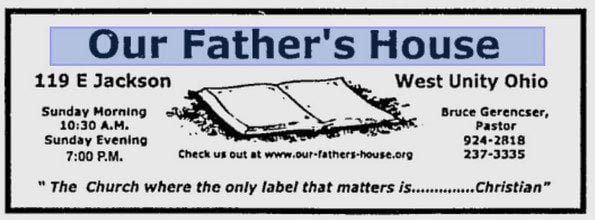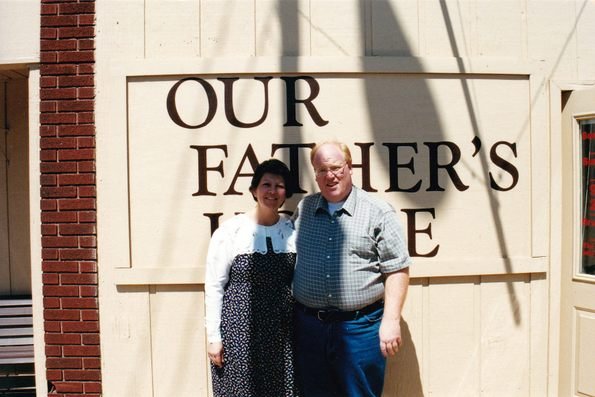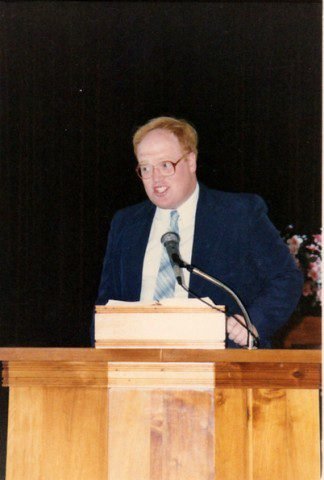
An Evangelical man emailed me and asked:
“Regarding the churches you pastored and started, do they still exist today or have they changed their names ? I could not find any of the church’s personal websites. Sorry if you feel I wasn’t trying hard enough. I don’t know what I missed as there are hundreds of ‘google’ links.”
When I get questions like this, I have to consider what is the person’s motive for asking this question. Do they really want to know or are they part of a small group of tin-hat Christians who think that my story is a lie. Yes, even after I’ve been blogging for sixteen years, there are Evangelicals who doubt that I am telling the truth. They question if I pastored when and where I said I did. One man told anyone who would listen that he knew someone who lived in northwest Ohio when I pastored two different churches, and he had never heard of me. This was PROOF, at least for this reason-challenged Christian, that I was lying. While I am well-known in this area, I am sure there are more than a few people who don’t know anything about me.
My gut told me that the aforementioned letter writer was just curious or nosy, so I decided to answer his question. He also asked a question about my mother’s suicide, an offensive question I did not answer. While I gave him a brief rundown of the churches I pastored and what happened to them, I thought I would turn my email into a blog post.
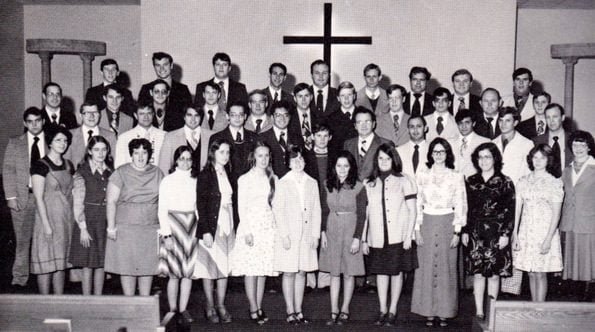
So, let’s get some facts out of the way:
- I made a public profession of faith at Trinity Baptist Church, Findlay, Ohio in 1972 at the age of fifteen.
- I was baptized at Trinity Baptist Church in 1972 at the age of fifteen.
- I was called to preach at Trinity Baptist Church in 1972 at the age of fifteen.
- I preached my first sermon for the Trinity Baptist Church high school youth group in 1972 at the age of fifteen. Bruce Turner helped me prepare the sermon. The text I preached from was 2 Corinthians 5:20 Now then we are ambassadors for Christ, as though God did beseech you by us: we pray you in Christ’s stead, be ye reconciled to God.
- In the fall of 1976, at the age of nineteen, I enrolled at Midwestern Baptist College, Pontiac, Michigan to study for the ministry. I met my wife at Midwestern. We married in July of 1978. In February 1979, unemployed and with Polly six months pregnant, we dropped out of college and moved to Bryan, Ohio.
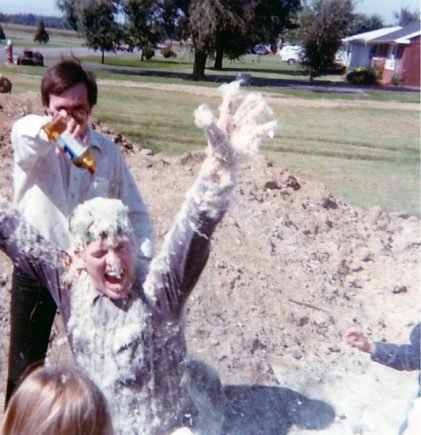
Montpelier Baptist Church, bus promotion
Montpelier Baptist Church, Montpelier, Ohio
In February 1979, Polly and I started attending Montpelier Baptist Church. Pastored by Jay Stuckey, a Toledo Bible College graduate; the church was affiliated with the General Association of Regular Baptist Churches (GARBC).
In March, Stuckey asked me to become the church’s bus pastor — an unpaid position. My responsibility was to build up the bus ministry which consisted, at the time of one bus. On average, the bus brought in 15 or so riders. I went to work aggressively canvassing Montpelier in search of new bus riders. Several church members helped me with this task. A few weeks later, on Easter Sunday, the bus attendance was 88. The head of the junior church program met me in the church parking lot and asked me what he was supposed to do with all the children. I told him, that’s your problem. I just bring ’em in.
Several months later, the church bought another bus. On the first Sunday in October, the church had a record attendance of 500. Bus attendance was around 150. The Sunday morning service was held at the Williams County Fairgrounds. We had dinner on the grounds, a quartet provided special music, and Ron English from the Sword of the Lord was the guest speaker. Tom Malone was scheduled to speak, but, at the last moment, he canceled.
The church started an expansion program to accommodate the growing crowds. The next week after our big Sunday, I resigned as bus pastor, and Polly and I packed up our household goods and moved to Newark, Ohio. Pastor Stuckey left the church a few years later. The church hired a pastor who was a Fundamentalist on steroids. Attendance began to decline, he left, and another man became pastor. About a decade after I left the church, it closed its doors, unable to meet its mortgage payment. The Montpelier First Church of the Nazarene bought the building and continues to use it to this day.
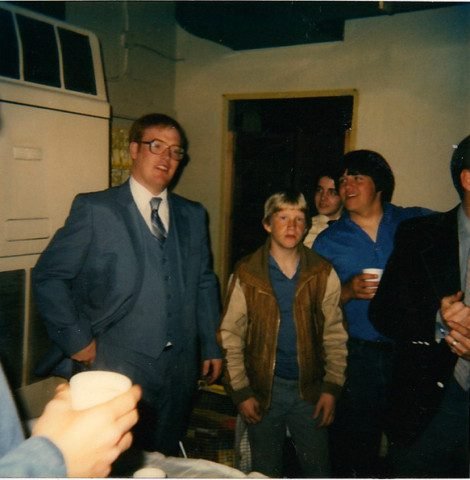
Emmanuel Baptist Church, Buckeye Lake, Ohio
In January of 1981, my father-in-law and I started Emmanuel Baptist Church in Buckeye Lake, one of the poorest communities in Ohio. I was the assistant pastor, primarily responsible for the church youth group. The church quickly grew with most of the growth coming from the burgeoning youth group. On any given Sunday, over half of the people in attendance were under the age of 18. I was ordained in April of 1983, several months before Polly and I moved 20 miles south to start a new Independent Fundamentalist Baptist (IFB) church, Somerset Baptist Church.
In the early 1990s, the church closed its doors.
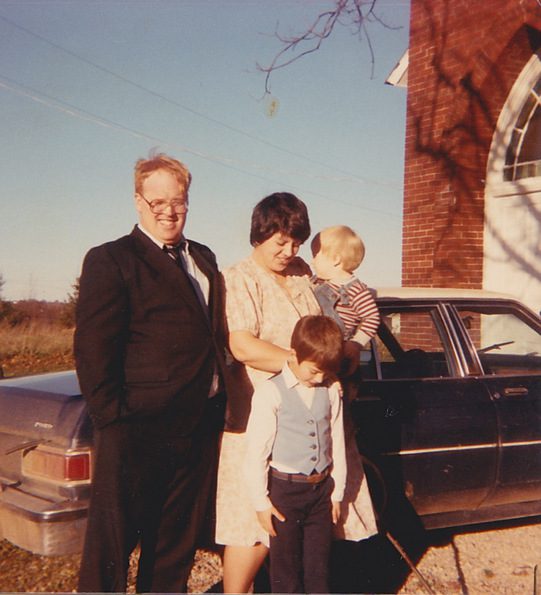
Somerset Baptist Church, Somerset, Ohio
In July of 1983, Somerset Baptist Church held its first service. There were 16 people in attendance. The church met in several rented buildings until it bought an abandoned Methodist church building in 1985 for $5,000. The building was built in 1831.
Over the years, church attendance rapidly grew — reaching 200 — ebbed, and then declined after we could no longer afford to operate the bus ministry. In 1989, we started a tuition-free Christian school for the children of the church. Most church members were quite poor, as was Perry County as a whole. Unemployment was high, and what good paying jobs there were disappeared when the mines began to lay off workers and close.
In February 1994, I resigned from the church and prepared to move to San Antonio, Texas to become the co-pastor of Community Baptist Church. Because I was a co-signer on the church mortgage and no one was willing to assume this responsibility, the church voted to close its doors. There were 54 people in attendance for our last service.
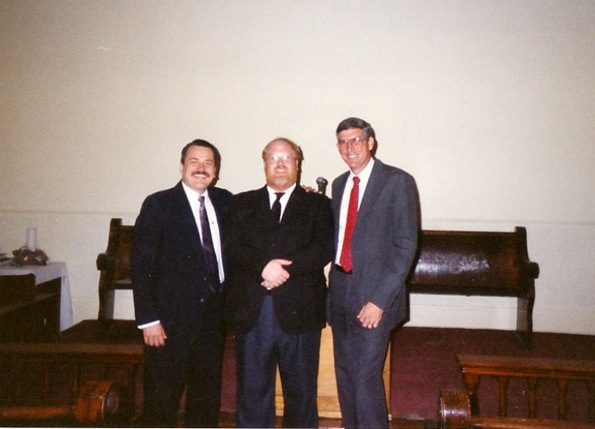
Community Baptist Church, Elmendorf, Texas
In March 1994, I began working as the co-pastor of Community Baptist Church, a Sovereign Grace (Calvinistic) Baptist church. My fellow pastor, Pat Horner, had started the church in the 1980s. The church ran about 150-200 in attendance. (I am uncertain as to the exact number since attendance records were not kept). Horner and I alternated preaching, with me doing most of the preaching on Sunday nights. While I was there, I helped the church start a Christian school and plant two churches, one in Stockdale, the other in Floresville. I also helped the church start a street preaching ministry and nursing home ministry.
This post is not the place to detail the various reasons why I left the church seven months later. Please read the I am a Publican and a Heathen — Part One series for a fuller explanation about why I left.
Several years after I left, Horner also left the church. The church is currently pastored by Kyle White. You can peruse the church’s website here. Horner is no longer a pastor.
Olive Branch Christian Union Church, Fayette, Ohio
In March 1995, a few weeks before my grandmother died, I assumed the pastorate of Olive Branch Christian Union Church in Fayette Ohio, a rural church 23 miles northeast of where I now live. Olive Branch was a dying, inward-grown church in need of CPR. Over the course of the next few months, I set about getting the church on the right track. The church was over 125 years old. I had never pastored an old, established church, but how hard could it be, right? Seven months later, I resigned from the church. Despite the best attendance numbers in decades, the church was increasingly upset with my brash style. It all came to a head one Sunday when one of the elders found out I had moved a table (a cheap Sauder Woodworking ready-to-assemble end table) off the platform to a storage closet. He confronted me just before Sunday morning service, demanding that I put the table back. I looked at him, said NO, and walked away. Three weeks later, I resigned, and Polly and I moved our mobile home off church property to a lot 1/2 mile north of the church. We sold the trailer in 2007 to the brother of a friend of ours.
Joe Redmond took over the church after I left. He has since died. I do not know who is presently pastoring Olive Branch. The church does not have a website. The church is located at the corner of Williams County Road P and US Highway 127.
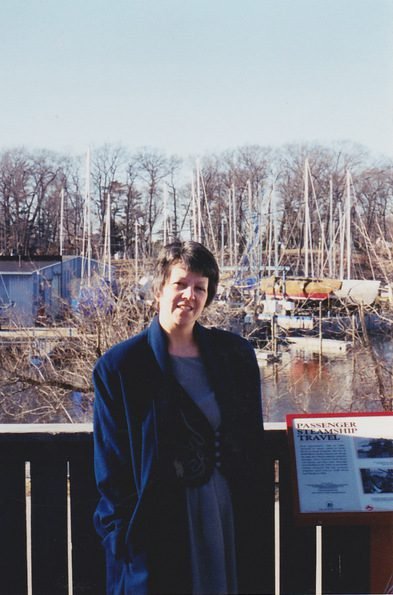
Grace Baptist Church/Our Father’s House, West Unity, Ohio
In September 1995, two weeks after I had resigned from Olive Branch, I started a new Sovereign Grace Baptist church in nearby West Unity, Ohio. The church was called Grace Baptist Church. I would remain pastor of this church until July 2002.
We bought the old West Unity library building to use as our meeting place. None of the families from Olive Branch came with me when I left the church, but over time three families left Olive Branch and joined Grace Baptist. In the late 1990s, we had a church conflict over contemporary music and spiritual gifts. Three families left the church. A few weeks later, we changed the name of the church to Our Father’s House, a nondenominational church.
It was during this time that I began to have serious health problems. In July 2002, for a variety of reasons, I resigned from the church. The church body decided that they didn’t want to continue on as a congregation, so they voted to close the doors and sell the building.
If I had to pick one church that had the nicest, most loving people, it would be this church. After the three families left, things were quite peaceful. This is the only church where Polly and I have the same opinion about the church. Great people, a pleasure to be around
Victory Baptist Church, Clare Michigan
In March of 2003, I assumed the pastorate of Victory Baptist Church, a small, dying Southern Baptist church in Clare, Michigan.
There is little good I can say about this church. I worked my ass off, while the church body, for the most part, was quite passive, In October of 2003, I resigned from the church. I never should have become its pastor. It needed to die a quick death. I don’t mean to say that members were bad people. For the most part, they were typical Southern Baptists. Good people, entrenched in the ways of the past, and unable to see their way clear to the future. The church and I were a wrong fit.
After we left, so did a few other families, moving on to nearby Southern Baptist churches. A year later, the church closed its door.
From October 2003 to April 2005, I had numerous opportunities to pastor churches or start new works. In the end, Polly and I decided we no longer wanted to be in the ministry. All told, we spent 25 years in the ministry.
I know by writing this post, I will open myself up to criticism from people who go through my writing with a nit comb, hoping to amass evidence that will justify their dismissal of my story. There’s nothing I can do that will satisfy people intent on marginalizing and discrediting me.
Bruce Gerencser, 66, lives in rural Northwest Ohio with his wife of 45 years. He and his wife have six grown children and thirteen grandchildren. Bruce pastored Evangelical churches for twenty-five years in Ohio, Texas, and Michigan. Bruce left the ministry in 2005, and in 2008 he left Christianity. Bruce is now a humanist and an atheist.
Connect with me on social media:
Your comments are welcome and appreciated. All first-time comments are moderated. Please read the commenting rules before commenting.
You can email Bruce via the Contact Form.

